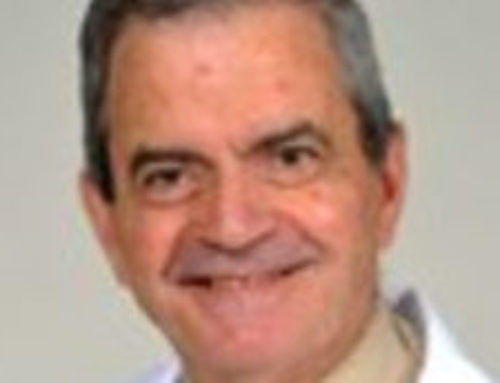CMA Members at the Forefront of Fighting State Physician Assisted Suicide Efforts
February 15, 2024
By Nadia Smith

CMA Past President and past Baltimore Guild President Dr. Marie-Alberte Boursiquot, F.A.C.P. is working with the Maryland Catholic Conference to fight against powerful out-of-state activists, who are trying to bring physician assisted suicide (PAS) to Maryland.
The Maryland Catholic Conference, the official public policy entity for the Archdiocese of Baltimore, Archdiocese of Washington and Diocese of Wilmington, opposes physician assisted suicide and has sounded the alarm for those that are most at risk to be pressured to seek PAS based on findings from other states that have legalized the practice. These groups comprise the elderly, the sick (including those struggling with mental health) and persons with disabilities.
Together with CMA members and others from the medical community, disability advocates, patient advocates and other religious organizations, the Maryland Catholic Conference is making every effort to defend those vulnerable population groups.
Efforts to introduce legislation that would allow physician assisted suicide have been tried and failed over the past decade, but supporters believe that 2024 is their year and millions of dollars has been poured into the state to advance this effort.
The Maryland legislature had a hearing regarding the End-of-Life Option Act (Senate Bill 443, House bill 403) this past week, where emotions ran high with testimonies from both sides. Maryland’s Health Secretary Laura Herrera Scott testified in favor of the legislation and Gov. Wes Moore (D) signaled his intention to sign such legislation if it came to his desk. Both stated that they’d want to see safety measures in place in any final legislation. However, opponents know all too well how laws that have passed with these safety measures in nine other states and the District of Columbia are not enforced or regulated as promised.
In an effort to educate and explain what is at stake with these bills, the Maryland Catholic Conference Bishops wrote an open letter, explaining that “in every state or country where this dangerous policy has been legalized, grave abuses and expansion have occurred making assisted suicide available to far more people and not just those facing imminent death. This legislation puts our most vulnerable brothers and sisters at risk of making decisions for themselves that are manipulated by factors such as disability, mental instability, poverty and isolation.”
Further, the Bishops note that the “central tenet guiding our opposition to this deadly proposal is that all human life is created in the image and likeness of God and therefore sacred.”
They point to today’s medical advancements and improvements in pain management that means individuals with terminal illnesses “can be made comfortable and improve the quality of the remainder of their lives…” instead of being coerced to end their lives.
In addition to the letter, the Maryland Catholic Conference offers several resources to assist in understanding life issues through its website. It also includes a call to pray and a recording of Dr. Boursiquot leading the St. John Paul II nine-day novena against physician-assisted suicide, which anyone can join at any time.

“Suicide is not medical care nor an ‘option’ in medical care,” testified Dr. Boursiquot before the Maryland legislature. “The physician involved in this act is protected by law to falsify the death certificate by listing an underlying condition as the cause of death…….this is absolutely appalling especially in a day and age when transparency is expected of our political leaders, physicians, and anyone in the position of authority. This undermines the integrity of the medical profession.”
While the fight continues in Maryland and a dozen other states, guilds such as the Denver Guild are trying to keep promised safeguards in place in Colorado where physician assisted suicide is legal.
Seven years after PAS became state law, Colorado Democrats are moving to cut down the wait time, extend the ability to prescribe lethal dosage to nurse practioners, and allow for out-of-state visitors to seek physician assisted suicide in their state.
Denver Guild Member Dr. Tom Perille wrote a poignant opinion piece for Colorado Politics that clearly articulates the facts surrounding PAS in practice and the dangers that lie ahead if safety measures are removed.
“Many assume people who choose PAS must have intolerable and disproportionate pain and suffering. The reality is PAS patients have no more pain or suffering than others who choose to die naturally from their disease,” he wrote. “Depression and hopelessness are common factors that drives the PAS decision but only 1% of Colorado PAS patients in 2022 were referred to a mental health professional.”
Guild President Dr. Tom Jensen points to Canada to see how the feared slippery slope is becoming reality. According to a report published in the Canadian Medical Association Journal, physician-assisted suicide could reduce annual health-care spending across the country by between $34.7 million and $136.8 million, a savings far outweighing the estimated $1.5 to $14.8 million in direct costs associated with implementing PAS.
“Despite everyone assuring us safety would be a number one priority, we now see efficient death is the goal with cost savings likely being the driver, which is not truly compassionate care,” Dr. Jensen said. “Instead of accompanying our patients with loving hospice care that reminds them of their dignity, PAS strips it away with a callous prescription for death in the midst of despair and hopelessness. Reports like this reveal the systemic pressure and agenda of PAS to save money.”
According to Dr. Tim Millea, chair of CMA’s Health Care Policy Committee and Conscience Rights Protection Task Force, the involvement of CMA members nationwide has been critical to defeat ongoing efforts to legalize physician assisted suicide and help educate on the issue.








